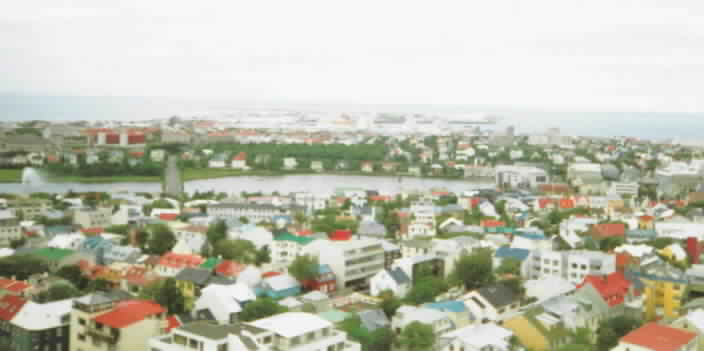
Our adventure started in Reyjavik. We got off the plane in the early hours to find that there was a bus drivers stike and we would have to take the more expensive alternative to get from the airport to the city. In the city we were staying at the youth hostel. This hostel is highly recomended. In Reykjavik we saw some of the local sights; Hallgrimskirkja, the millenium walk, the observatory and the blue lagoon. We also sampled the supposedly wild nightlife. If a good night out is your reason for visitng don't bother!
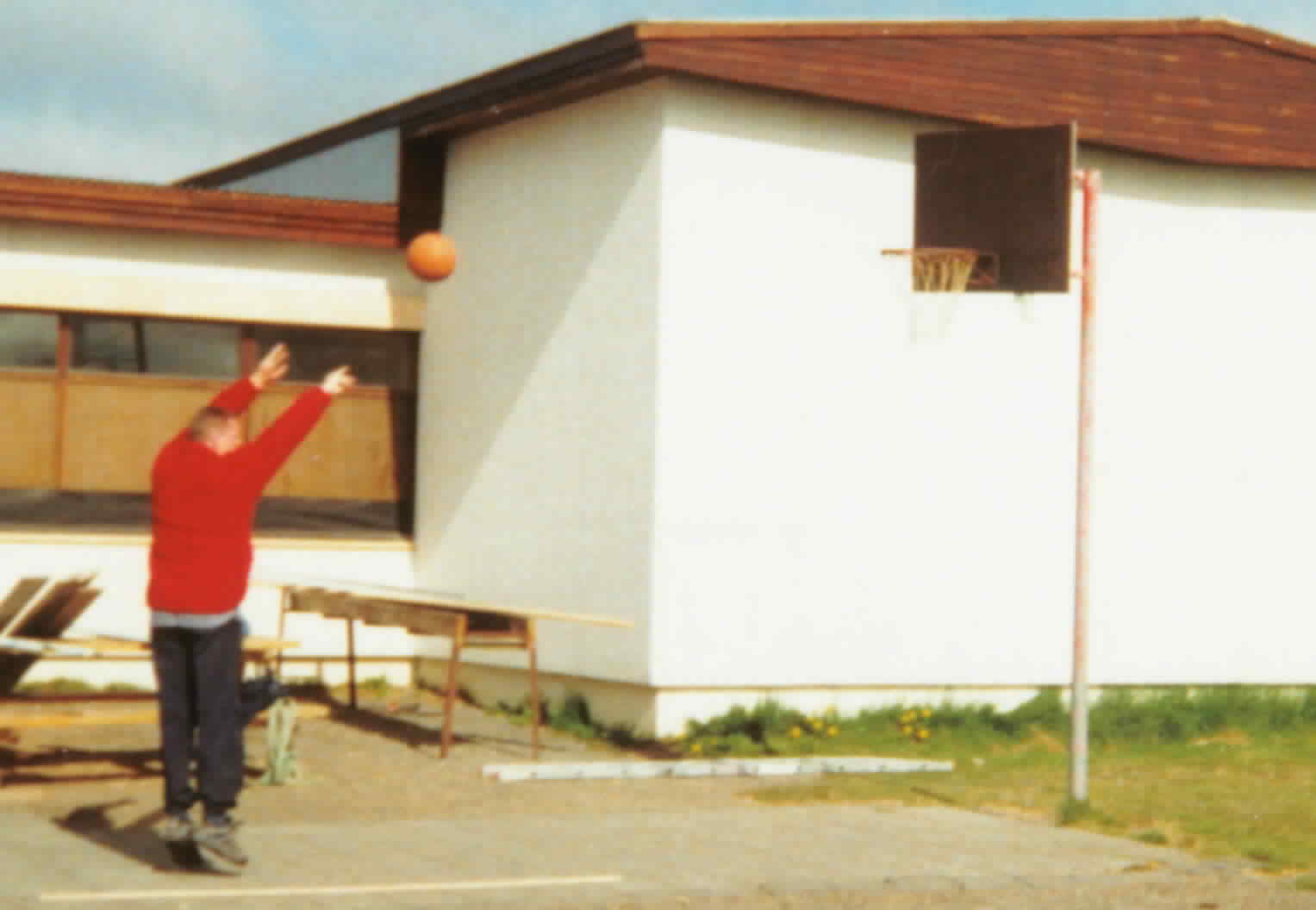
From Reykjavik we travelled to the north of Iceland to Akureyri. Akureyri is just outside the artic circle but still had a botanical garden and a few ancient heros to speak of. We stayed at the friendly Storholt youth hostel. During our stay in the north we caught the ferry to the island of Grimsey. This island is famous because it is the only part of Iceland that is in the artic circle - well, half of it anyway. There is a major photo opportunity with the sign marking the edge of the artic circle. Most visitors go on a day trip but you can stay overnight if you wish.
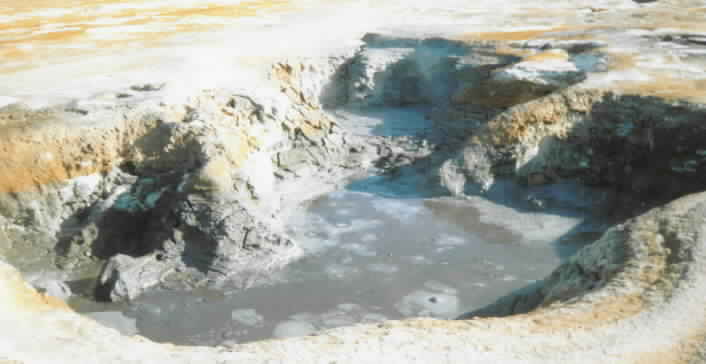
Our journey then took us to Husavik to go whale watching and, then, inland to Myvatn (midge lake) across a "moonscape" lava field. Myvatn is a varied place. It has nature reserves, craters and bubbling mud pots in the surrounding area. It even has a midnight marathon during the summer. Unfortunately we were too late to submit our applications! Also close by is a fantastic waterfall, Godafoss.
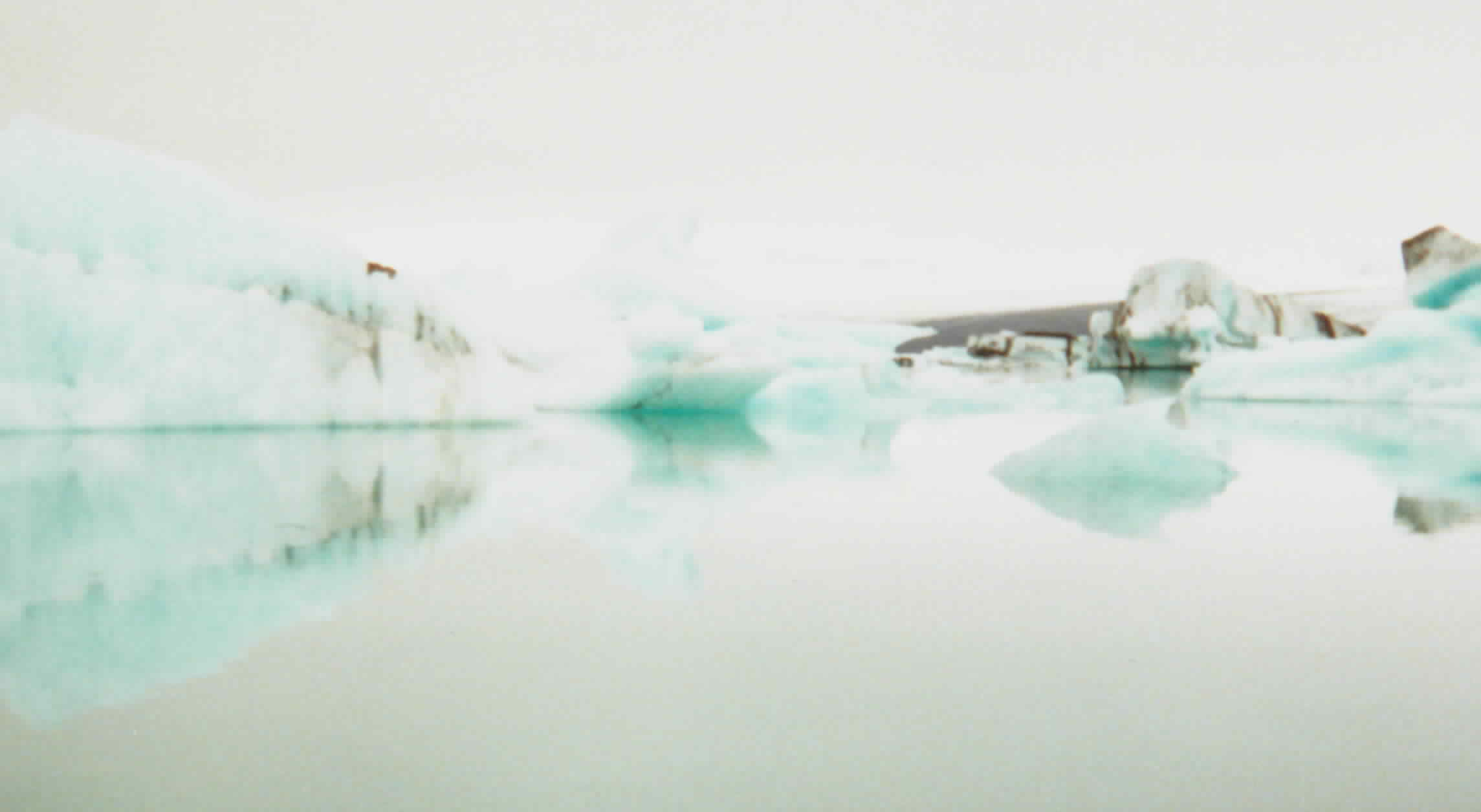
From Myvatn we travelled to the South west to Hofn. We used Hofn as a base for exploring Vatnajokull where we built a snowman at the end of June and the glacial lake of Jokulsarlon.
After travelling to the more remote parts of Iceland it was strange being back in the more touristy "golden triangle". We stayed in the town of Hveragerdi at a lovely youth hostel called Hveragerdi Bol. There is a lot of geothermal activity in the town including a gyyser is someone back garden! There is also, as with most icelandic towns, a nice outdoor swimming pool. Do not make the mistake that we almost made of staying in Selfoss (meaning salt waterfall). There is nothing of interest to tourist in Selfoss, unless you are interested in seeing the local teenagers cruise up and down the dual carriage way!
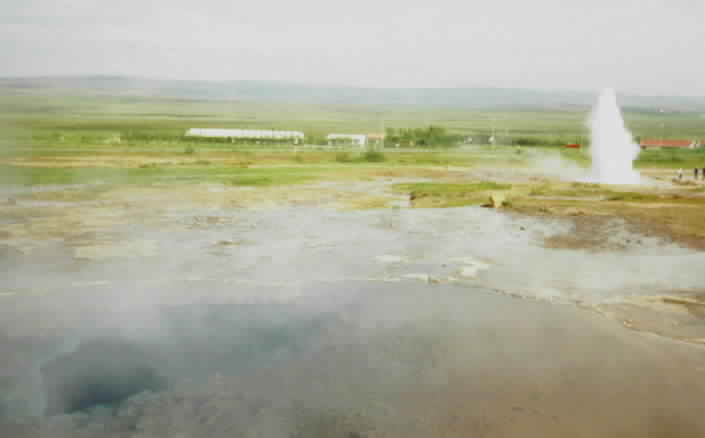
From here we Gullfoss and then spent the night near the geothermal site of Geysir. The largest gyser, Stokkur, could be seen and heard from our hotel room. There is also a pleasant walk to Haukadalur, a medieval centre of learning. On the way back to Reyjavik we went through Pinvellir. This is the historical site of the Alping and lies between the European and American techtonic plates. These form a natural amphitheatre from where the speakers could be heard. You can still see many of the buddir, or booths, today.
Overall one the great things about going to Iceland is the variety of things to do and with the longer hours of daylight during the summer you can make the most of the attractions. Eating out and travelling in Iceland may be more expensive than other European countries such as Greece and Spain but it is really not a great deal more expensive that the UK. You are allowed to take food (& alcohol) into the country and camping is always an option so these help to keep the costs down.
Here is a list of other useful links: